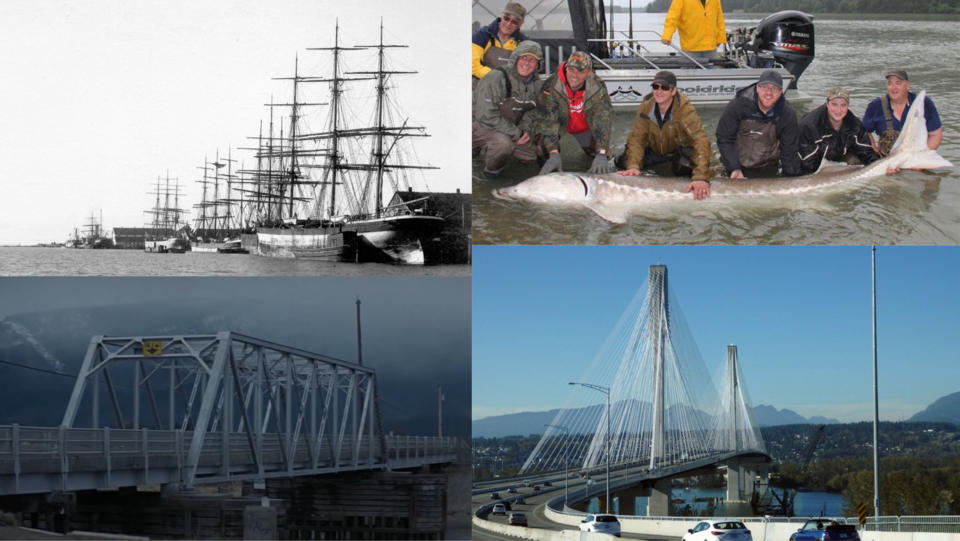The Fraser River is hugely important not just for Vancouver but the Province of B.C. as we know it.
Throughout human history here, it's provided transportation and food to a massive area. Many First Nations are located along the river; to some it's known as Sto:lo, which simply means river; in other areas, it's known as ʔElhdaqox, or sturgeon river.
When European settlers arrived it also became important to industry, including gold rushes and fisheries. The river's delta continues to be important in a variety of ways to the city, including as an agricultural powerhouse and the home to the city's airport.
1. It's one of the biggest rivers in the world
It's the biggest river entirely in B.C. and one of the biggest in Canada.
On a global scale it's the 111th longest in the world, and ranks 90th for its outflow (how much water it puts in the ocean per minute).
It starts small, not far from the triple continental divide (Snow Dome mountain) in a spring in Fraser Pass near Mount Robson in the Rocky Mountains, before heading to Prince George and banking south to Hope.
By the time it gets to Metro Vancouver it splits into several arms, but it's estimated its average outflow is 3,550 cubic metres of water per second (that's 330 dump trucks every second). In a year 20 million tons of sediment gets poured into the Salish Sea.
2. It's got some of the biggest fish in the world just under the surface
White sturgeon are giants.
The massive fish are not often seen if you're standing on the banks of the Fraser River, but they're there.
Beluga sturgeon in Russia are a bit longer and a bit heftier, but the local white sturgeon are still among the largest freshwater fish in the world. In fact, the biggest of their species, which ranges up and down the coast of North America, was caught in the Fraser River in 2021.
It measured 11-and-a-half feet long. Only a handful of other bony fish (as in not sharks) can get this size.
3. The Port Mann Bridge was the world's widest bridge when it opened
As such a large feature in the landscape, the Fraser River needs large infrastructure to cross it. The Port Mann Bridge is the big one around Metro Vancouver, connecting Surrey to Coquitlam and the city.
As the main connection between the Fraser Valley (and the interior of the province) and Vancouver, it needs to be able to hold a lot of traffic. It's a long bridge, no doubt, but the impressive part of the Port Mann is its width. With 10 lanes of highway traffic including large trucks, it's a robust structure.
When it was built Guinness World Records certified it the widest bridge in the world, surpassing the famed Sydney Harbour Bridge in the Australian city. The record didn't last long and it was surpassed itself, by Bay Bridge in San Francisco when it was widened.
4. Rambo: First Blood was shot around it
Speaking of bridges, one had a bit part in one of the most famous action films of the 1980s.
If you've seen Rambo: First Blood you've seen the Kawkawa Bridge, which passes over the Coquihalla River just before it enters the Fraser River in Hope. The film was substantially shot in Hope, but also featured other areas around the Fraser River including Pitt Meadows.
5. It has an unusual tidal zone
If you've taken the ferries from Vancouver to the Island, you've crossed over the area where the ocean and Fraser River meet each other. While some rivers drift gently into the sea, not the Fraser.
It rams into the ocean, and the border zone can sometimes be very visible.
"This estuary differs from some others in North America. In the San Francisco Bay, the Chesapeake Bay, and the mouth of the Hudson River, the mixing of salt and fresh water extends over miles. Near Vancouver, the mixing occurs along an abrupt front spanning just tens of metres," notes NASA.
It's so abrupt it can even confuse salmon.




